Intro
Discover effective plantar wart medication and treatments, including cryotherapy and salicylic acid, to alleviate painful symptoms and promote healing, with 5 proven ways to remove plantar warts.
Plantar warts are a common and often painful condition that can affect anyone, regardless of age or health status. They are caused by the human papillomavirus (HPV) and can be spread through skin-to-skin contact or by walking barefoot in areas where the virus is present. If you're suffering from plantar warts, you're likely looking for effective ways to treat and eliminate them. In this article, we'll explore five ways plantar wart medication can help you overcome this condition.
The importance of treating plantar warts cannot be overstated. If left untreated, they can cause significant discomfort, pain, and even lead to more serious health issues. Furthermore, plantar warts can be highly contagious, making it essential to seek treatment as soon as possible to prevent the spread of the virus to others. With the right medication and treatment approach, you can effectively manage and eliminate plantar warts, restoring your foot health and overall well-being.
Plantar warts can be particularly challenging to treat due to their location on the sole of the foot. The thick skin in this area can make it difficult for medications to penetrate and reach the root of the wart. However, there are several effective treatment options available, including over-the-counter medications, prescription creams and ointments, and even home remedies. By understanding the different types of plantar wart medication and their applications, you can make informed decisions about the best course of treatment for your specific condition.
Understanding Plantar Warts
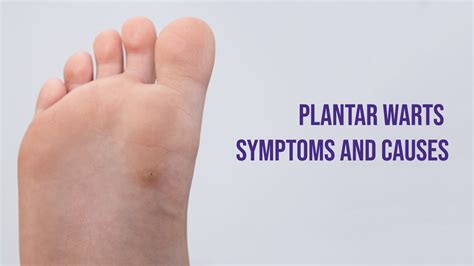
To effectively treat plantar warts, it's essential to understand the condition and its causes. Plantar warts are small, rough growths that appear on the sole of the foot, often causing pain and discomfort when walking or standing. They can be flat or raised, and may appear singly or in clusters. In some cases, plantar warts can develop black dots, which are actually small blood vessels that have grown into the wart.
Causes and Risk Factors
Plantar warts are caused by the human papillomavirus (HPV), which enters the body through small cuts or cracks in the skin. The virus can be spread through skin-to-skin contact, or by walking barefoot in areas where the virus is present, such as public swimming pools or locker rooms. Certain risk factors can increase your likelihood of developing plantar warts, including having a weakened immune system, walking barefoot in public areas, and sharing personal care items, such as towels or razors.Types of Plantar Wart Medication
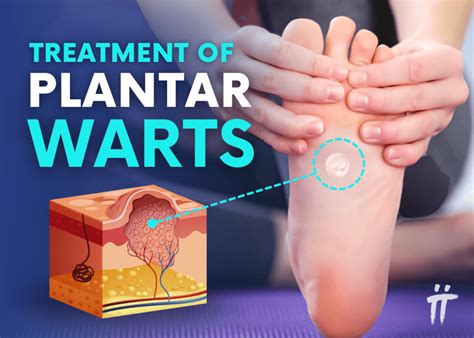
There are several types of plantar wart medication available, each with its own unique benefits and applications. Over-the-counter medications, such as salicylic acid and cryotherapy, can be effective in treating mild to moderate cases of plantar warts. Prescription creams and ointments, such as imiquimod and podofilox, may be prescribed for more severe cases or for individuals who have not responded to over-the-counter treatments.
Over-the-Counter Medications
Over-the-counter medications for plantar warts typically contain salicylic acid, which helps to dissolve the keratin protein that makes up the wart. These medications can be applied directly to the wart and may need to be repeated for several weeks or months to achieve desired results. Cryotherapy, which involves freezing the wart with liquid nitrogen, is another common over-the-counter treatment for plantar warts.Prescription Plantar Wart Medication
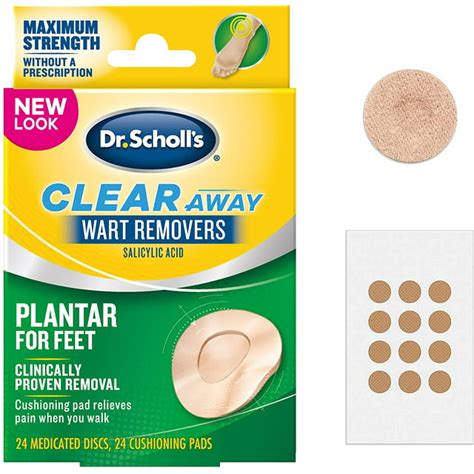
Prescription plantar wart medication may be necessary for more severe cases of the condition or for individuals who have not responded to over-the-counter treatments. Imiquimod, a cream that stimulates the immune system to fight off the HPV virus, is a common prescription medication for plantar warts. Podofilox, a solution that is applied directly to the wart, is another prescription option.
Home Remedies
In addition to over-the-counter and prescription medications, there are several home remedies that may be effective in treating plantar warts. Duct tape, which involves covering the wart with duct tape for several days, can help to stimulate the immune system and promote healing. Tea tree oil, which has antiviral and antifungal properties, may also be applied directly to the wart to help combat the HPV virus.5 Ways to Use Plantar Wart Medication
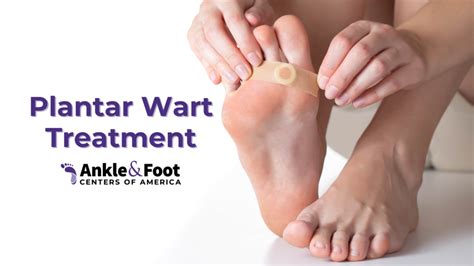
Here are five ways to use plantar wart medication to effectively treat and eliminate the condition:
- Apply salicylic acid: Salicylic acid is a common ingredient in over-the-counter plantar wart medications. It helps to dissolve the keratin protein that makes up the wart, promoting healing and reducing discomfort.
- Use cryotherapy: Cryotherapy, which involves freezing the wart with liquid nitrogen, is a common over-the-counter treatment for plantar warts. This method can be effective in treating mild to moderate cases of the condition.
- Apply imiquimod cream: Imiquimod is a prescription cream that stimulates the immune system to fight off the HPV virus. It can be applied directly to the wart and may need to be repeated for several weeks or months to achieve desired results.
- Try duct tape therapy: Duct tape therapy, which involves covering the wart with duct tape for several days, can help to stimulate the immune system and promote healing.
- Use tea tree oil: Tea tree oil, which has antiviral and antifungal properties, may be applied directly to the wart to help combat the HPV virus.
Prevention and Maintenance
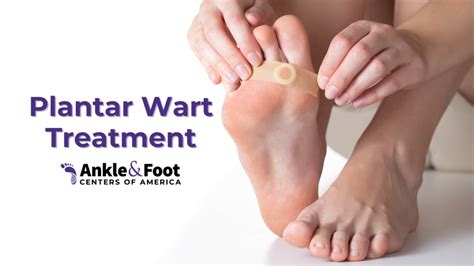
Preventing plantar warts is key to avoiding the discomfort and pain associated with the condition. Here are some tips for preventing plantar warts:
- Wear shoes or sandals in public areas, such as swimming pools or locker rooms
- Avoid sharing personal care items, such as towels or razors
- Keep your feet clean and dry, changing your socks regularly
- Avoid walking barefoot in areas where the HPV virus may be present
By following these tips and using plantar wart medication as directed, you can effectively treat and eliminate the condition, restoring your foot health and overall well-being.
What are the symptoms of plantar warts?
+Plantar warts can cause a range of symptoms, including pain, discomfort, and rough, thick skin on the sole of the foot. In some cases, plantar warts can develop black dots, which are actually small blood vessels that have grown into the wart.
How are plantar warts diagnosed?
+Plantar warts are typically diagnosed through a visual examination of the foot. A healthcare professional may also perform a biopsy to confirm the diagnosis and rule out other conditions.
Can plantar warts be prevented?
+Yes, plantar warts can be prevented by taking certain precautions, such as wearing shoes or sandals in public areas, avoiding sharing personal care items, and keeping your feet clean and dry.
We hope this article has provided you with a comprehensive understanding of plantar warts and the various treatment options available. If you're suffering from plantar warts, we encourage you to try one of the five ways to use plantar wart medication outlined above. Remember to always follow the instructions carefully and consult with a healthcare professional if you have any questions or concerns. By working together, we can help you overcome plantar warts and restore your foot health and overall well-being. Don't hesitate to share your thoughts and experiences with us in the comments below, and be sure to share this article with anyone who may be struggling with plantar warts.
